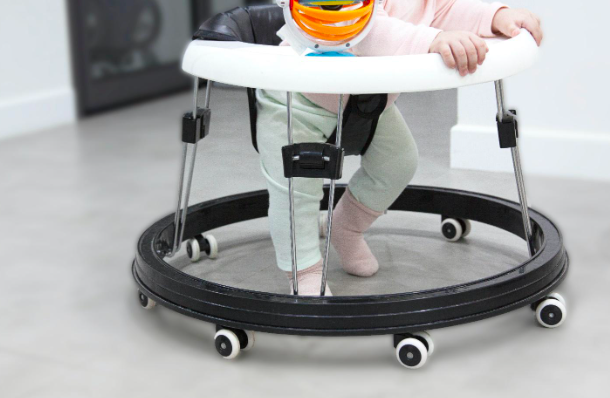The development speed of every child varies, depending on several factors. While one baby may reach all the milestones fast, others may take their time. So, there’s no need to get alarmed at minor delays in their development. However, suppose there are ongoing delays in something particular or multiple delays. In that case, it might signify development issues that can later affect the baby’s life.
Development delays are defined as delays in social, motor, language, and thinking skills. They can be caused by several reasons, such as complicated pregnancy, premature childbirth, and even heredity. However, the cause of developmental delays isn’t always clear. But if you suspect that your child is experiencing ongoing development delays, consult with a pediatrician immediately as they can indicate some underlying health conditions.
Now, let’s discuss some developmental delays in children and signs you can look out for to take proper steps.
1. Motor skills or movement
One of the earliest signs of developmental delays is visible in motor skills. Most new parents get anxious when their child doesn’t start crawling or walking at the requisite time. While it may just be the case that the child is a slow learner, the cause for alarm is when you notice other motor skill issues in your baby. For example, if the baby is 5-6 months old and still has difficulty grasping or holding objects, it suggests that the baby’s fine motor skills are delayed.
Common causes of these delays are epilepsy, cerebral palsy, premature birth, cognitive delays, and vision problems. Nevertheless, you will need to visit your pediatrician to unearth the underlying cause. In the case of cerebral palsy, the pediatrician will determine the classification of cerebral palsy and suggest physical or occupational therapy to improve the condition.
How to spot it
Some signs that you can look out for to determine if your child is experiencing motor skill delays include:
- Baby doesn’t reach, grasp, or hold objects by the time they are 3-4 months old
- Doesn’t roll over when they are five months old
- Can’t sit up without help at six months old
- Is not actively reaching for stuff when they are seven months old
- Isn’t crawling or standing without support when they are one year old
- Isn’t walking or pushing wheeled toys when they are 18 months old
2. Language and speech
One of the most common development delays is speech and language delay. In this case, speech refers to the child’s ability to communicate verbally. On the other hand, language is your child’s ability to receive information and express it. On the one hand, if your toddler is not speaking as quickly as their other siblings, don’t worry. Since language development happens in spurts and is often uneven, a few months of delay is not that big of a deal.
However, one particular cause of language delay that you should investigate is if your child has hearing loss. Luckily, a quick trip to the doctor can rule out that possibility. But if there is no hearing loss and your toddler, now of school age, is still struggling with speech, then consider the possibility of any learning disability such as ADHD or ASD. If there is a speech delay, your pediatrician will refer a speech-language pathologist for evaluation.
How to spot it
Some signs to watch out for are:
- Not responding to loud noises or babbling by 3-4 months of age
- Doesn’t imitate sound by four months of age
- Doesn’t respond to sound when seven months of age
- Isn’t speaking any single word when they turn one
- Is only imitating speed, not speaking more than 15 words, or not speaking at all by age two
3. Cognitive
Cognitive delays arise when a child experiences intellectual disability or thinking delays. One of the most apparent causes of cognitive developmental delay is learning disabilities like ASD or ADHD. Some other causes include genetic disorders, lead poisoning, etc. The most critical aspect in this regard is to notice, intervene, and acquire treatment for your child when faced with cognitive developmental delay.
How to spot it
- Not babbling
- Not asking for anything or pointing towards anything
- Not interested in showing objects to adults
- Not imitating any gestures that you make (head shake, hand wave)
- Consistent, repetitive actions when playing with any toy
- No interest in people
- Lack of eye contact when they communicate
- Only attached to a few toys
- More interested in objects than people
- Not responding to their name
- Forgetting vocabulary or skills they previously knew
4. Vision
Vision development is a rare development delay. But do not panic, as the baby’s vision is typically blurry in the first six months after birth. However, it should improve with time. If it doesn’t, there is some cause for concern, necessitating professional intervention.
How to spot it
If you suspect that your baby is facing developmental delays, some signs that you should look out for are:
- Not noticing hand gestures by two months of age
- Eye drainage or constant tearing by the time they turn six months old
- Isn’t following objects that are a couple of feet away with their eyes by six months of age
As mentioned above, every infant grows and develops differently, so don’t panic if you notice vision issues. Instead, approach a child’s specialist to determine the cause and seek proper treatment.
Conclusion
Keep in mind that reaching all the developmental milestones on time isn’t the only criteria you can set for your baby’s development. All children have different paces, meaning the normal range to reach each milestone is wide and contingent on various factors. These factors include household environment, mother’s health, hereditary issues, etc. However, if there is a development delay even after a particular age, it is best to start looking for possible reasons that could be the cause. In case of any concern, visit your pediatrician since they can provide professional guidance in this regard. The timely intervention of experts can help discover the cause and devise treatment plans specific to your baby’s needs.
























